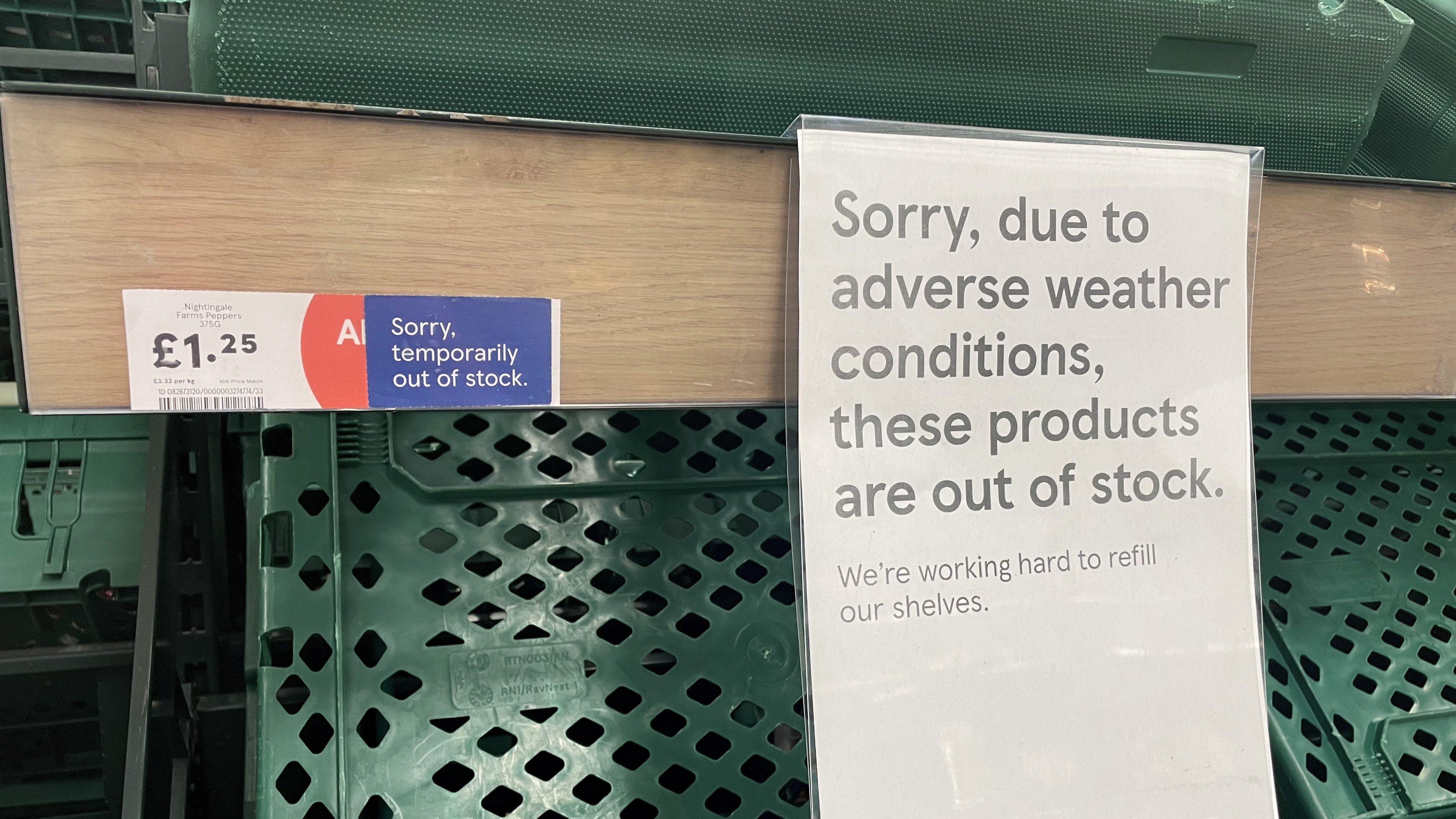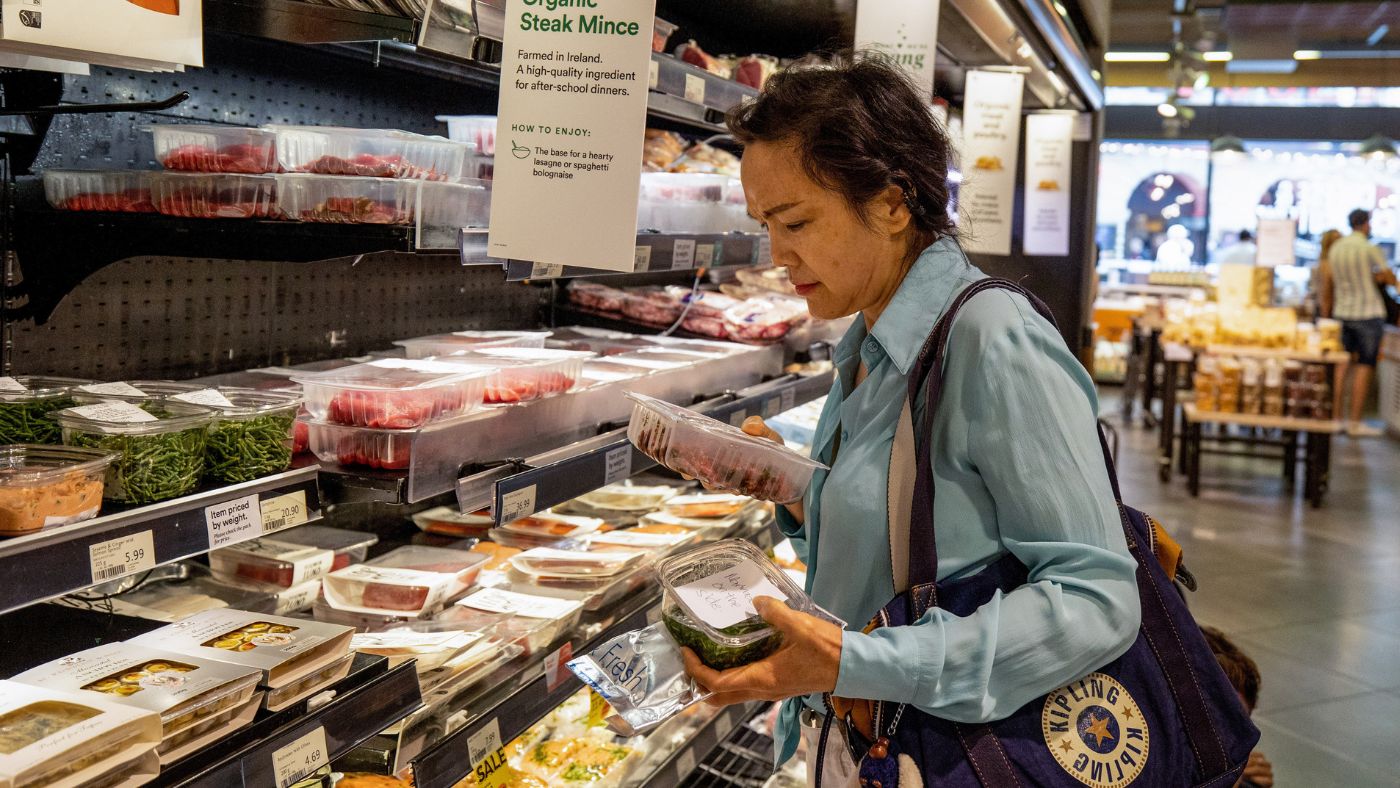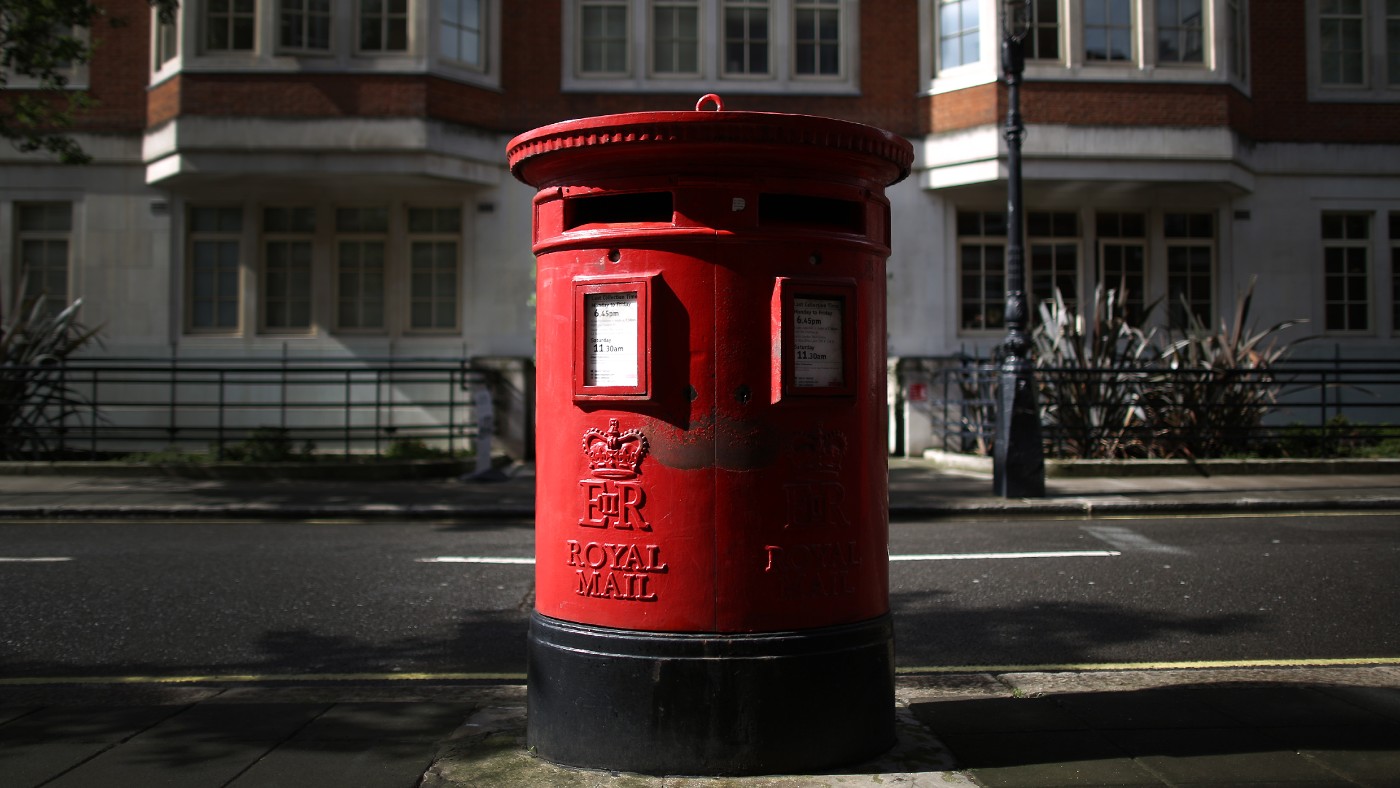The great British food shortage: what’s causing empty supermarket shelves?
Unseasonal weather, transport issues and energy prices are leading to rationing of fresh produce in UK stores

A free daily email with the biggest news stories of the day – and the best features from TheWeek.com
You are now subscribed
Your newsletter sign-up was successful
Tomatoes, cucumbers, lettuce, peppers and citrus fruits are in short supply at UK supermarkets, with fears the empty shelves could last for several weeks.
The recent shortages have caused widespread concern, with photos on social media of empty supermarket shelves, from “customers of Waitrose, Morrisons, Waitrose and Aldi”, said the i news site. Some questioned the effect that Brexit might have had, while others mentioned overall rising prices in the country.
Poor weather conditions in Spain and Morocco “have been compounded by transportation difficulties and a lack of European glasshouse production as a result of the energy crisis”, said National World. These factors “have driven up wholesale food prices by half in some instances”, said the news site.
The Week
Escape your echo chamber. Get the facts behind the news, plus analysis from multiple perspectives.

Sign up for The Week's Free Newsletters
From our morning news briefing to a weekly Good News Newsletter, get the best of The Week delivered directly to your inbox.
From our morning news briefing to a weekly Good News Newsletter, get the best of The Week delivered directly to your inbox.
Paul Rowe, from Poupart Imports, which supplies independent retailers and UK wholesalers, told National World that the shortages could last for “several weeks”.
Poor weather has affected supplies...
Spain and Morocco, “known in the industry as Europe’s breadbaskets at this time of year”, according to National World, are the source of most of the UK’s fresh produce.
Warm weather in early January followed by “freezing conditions and extreme wind and rain storms” has hit crops in both countries, added the website.
Since Brexit, UK importers have “become increasingly reliant on Morocco”, said The Telegraph, as new trading arrangements have “slowed” the movement of produce from other European countries. But storms in Morocco have meant produce has not been able to be shipped to the UK as normal.
A free daily email with the biggest news stories of the day – and the best features from TheWeek.com
... and prices are rising as a result
Farmers in Britain have been “planting fewer vegetables… due to the rising cost of heating greenhouses”, according to the i news site.
Supermarkets have also been “unwilling to pay higher prices to cover the cost of producing fresh fruit and vegetables in the UK year-round”, farmers told the site.
Rowe told National World that “it [is] the wholesale price dynamics that [are] driving the shortages”. There have been some instances, he says, where growers have refused to unload their produce because UK supermarkets refuse to pay more for it.
Growing a tomato cost 27% more last year than it did in 2021, according to research by the National Farmers Union. This caused the cost of a kilogram of tomatoes to rise from £2.09 in January 2020 to £2.96 in February 2023, said the Office for National Statistics.
Similar spikes in costs “were found with other crops, including lettuce, broccoli and potatoes”, said i news.
How long will it last?
Tesco, Aldi, Asda and Morrisons have all introduced fresh produce rationings into their stores, the Independent reported.
Tesco and Asda now allows only “three items per customer” of tomatoes, peppers and cucumbers at its stores. Additionally Asda has put rations on cauliflower, lettuce, broccoli and raspberries, said Sky News.
The shortages, Rowe told National World, will most likely last for a month, until “new crops start to come out of Northern Europe”. He recommended that customers try shopping for high-demand goods in independent retailers “where price is less of a factor”.
However, the UK will have a “difficult year” ahead, he said, as “many growers” are still “choosing not to plant vegetables due to uncertainties over return”.
Many British farmers have been planting wheat over produce, “as it’s less expensive to grow and lasts longer”, Jack Ward, chief executive of the British Growers Association, told the i news site.
Whether it’s climate or rising energy prices driving these shortages, Liz Webster, the Save British Farming chair, believes the government needs to take action.
She blamed Brexit and said “this disastrous Conservative government…has no interest in food production, farming or even food supply”, the Independent reported.
The “clock is ticking”, Webster said, for the government to lower inflation and provide subsidies to farmers so that they may continue to grow produce more regularly.
Therese Coffey, the environment secretary, denied that the government was in any way responsible, saying: “We can’t control the weather in Spain.”
-
 Will increasing tensions with Iran boil over into war?
Will increasing tensions with Iran boil over into war?Today’s Big Question President Donald Trump has recently been threatening the country
-
 Corruption: The spy sheikh and the president
Corruption: The spy sheikh and the presidentFeature Trump is at the center of another scandal
-
 Putin’s shadow war
Putin’s shadow warFeature The Kremlin is waging a campaign of sabotage and subversion against Ukraine’s allies in the West
-
 Price of pasta doubles: what food is getting more expensive in UK?
Price of pasta doubles: what food is getting more expensive in UK?feature New data shows skyrocketing inflation in the cost of certain supermarket staples
-
 What is misophonia?
What is misophonia?feature New Cate Blanchett film Tár has drawn attention to the little-known but debilitating neurological condition
-
 How advent of King Charles will affect coins, stamps and etiquette
How advent of King Charles will affect coins, stamps and etiquettefeature Many everyday items and traditions will be different under the new monarch
-
 What is the gender housing gap?
What is the gender housing gap?feature Time it takes to get on to the property ladder differs depending on whether you’re male or female
-
 What is aphasia – and what does diagnosis mean for Bruce Willis?
What is aphasia – and what does diagnosis mean for Bruce Willis?feature Film star ‘stepping away’ from acting due to brain condition that affects ability to communicate
-
 5G and planes: the risk to flying examined
5G and planes: the risk to flying examinedfeature Airlines bosses say roll-out of 5G services near US airports risks flights “chaos”
-
 What’s on this weekend? From Brexit Live to A Beautiful Day in the Neighbourhood
What’s on this weekend? From Brexit Live to A Beautiful Day in the NeighbourhoodThe Week Recommends Your guide to what’s worth seeing and reading this weekend
-
 ‘Festival of Brexit’ to go ahead in 2022
‘Festival of Brexit’ to go ahead in 2022Speed Read Boss vows to bring ‘joy, hope and happiness’ to divided nation